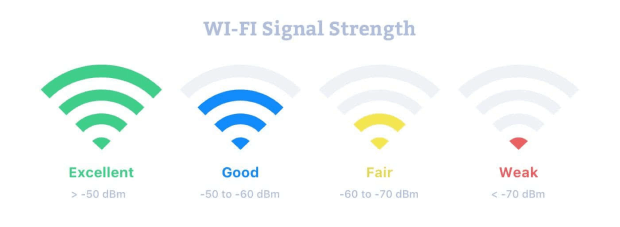
In line with a broader decline in hobby fees, banks are reducing interest rates on fixed deposits (FDs), in interest to savings account deposits. SBI or State Bank of India’s final month decreased its financial savings account deposit charge to 3.5 in step with cent – the lowest in many years. Other lenders like HDFC Bank, Bank of Baroda, and Axis Bank also followed, reducing their savings account deposit prices. India’s biggest bank, SBI, had in advance reduced its fixed deposit fees. SBI is imparting an interest rate of 6.75 in keeping with cent on one-year constant deposits, while deposits of adulthood of three to five years now fetch 6.25 according to the cent. HDFC Bank, u. S’s No. 2 lender by using property has also announced a hobby rate of three. Five in keeping with cent according to annum for clients retaining account balance below Rs. 50 lakh in their savings accounts.
Financial planners say that maintaining a large amount of cash in financial savings is not a terrific approach. Liquid mutual price range could be an alternative for investors who want to check out. “Savings Account is where lazy cash sits, and we consider that a zero. A five in step with cent discount on interest rates will not influence traders to switch from retaining the money in the savings bank. The better liquidity of the financial savings bank account and the perceived higher protection stay selection influencers,” says Manoj Nagpal, CEO of Outlook Asia.

Liquid finances spend money on very liquid, short-term units of the highest credit satisfactory. The rationale is to shield the portfolio from volatility and earn hobby income without taking undue risks. These days, many mutual fund homes have given you apps for alleviating the process of investing in liquid funds. You may switch money out of your financial institution account and redeem your liquid range using those apps. The money received was transferred to your bank account in a few minutes. You can start investing with as little as Rs. One hundred. According to the website of the mutual fund research company Value Research, liquid budget as a category has given a 6.6 in line with cent return in the beyond three hundred and sixty-five days.
Mr. Nagpal of Outlook Asia suggests accrual debt mutual funds for conservative investors who position their cash in constant bank deposits. Accrual budget particular awareness on income interest earnings from the coupon/hobby charge offered using bonds. In comparison, duration funds undertake the method of generating a massive part of their returns from appreciation in bond prices that happen when interest charges decline. Typically, the returns of accrual finances are much less risky compared to period bonds.
“We maintain to accept as true with that hobby rates in short to medium periods do not have a great deal to move. Hence, we agree that buyers should examine the excessive exceptional accrual price range as a sizable part of the debt allocation for the long term. They will provide lower volatility to buyers moving from fixed deposits. At the same time, the duration debt price range can be unstable and not appropriate for financial institution fixed deposit investors,” says Mr. Nagpal.
Staying invested in a debt mutual fund for over three years brings additional tax benefits. Debt fund investments redeemed after 3 years qualify for the benefit of lengthy-time period capital gains. The profits are taxed at 20% according to the sentiment, but grow to be eligible for indexation advantages. You are taxed handiest on the profits after adjusting for inflation. The indexation gain helps bring down the tax burden substantially, a benefit that isn’t always to be had on constant bank deposits.
How to Choose the Right Bank For A Fixed Deposit Investment
A constant deposit is a first-rate choice to save a part of your budget. It presents a steady hobby flow and may plenty safer than equity investments or mutual funds. However, when selecting the economic institution to make the deposit, do not forget some vital elements.
Choosing the Right Bank or Organisation
You can adequately open an FD account with any PSU or a large public sector bank. You can also open an FD account. Many corporations additionally invite constant deposits at appealing interest rates to elevate the budget for operations.
However, don’t determine wherein to make investments based entirely on the rate of interest offered to your deposit. It is one of the important issues. However, there is other info you want to look at.
Security
Public and personal zone banks perform below the manipulate and supervision of the Reserve Bank of India. They ought to comply with the regulations and policies of the RBI and can’t default on payments.
However, if you opt for a corporate FD, they may not be regulated utilizing the RBI, and you undertake a huge amount of risk. Corporate FD would possibly offer higher interest rates, but the safety of your cash depends on the business’s financial stability.
Fees
If you decide to shut an FD earlier than the maturity period, your bank may also levy a penalty of up to one% % interest on the amount. That is that if the financial institution gives 7% interest on your deposit, and you withdraw the amount earlier than the time, you’ll only recognize 6% interest on the deposit as much to the date of withdrawal.
Interest Earnings and Tax
If the overall hobby income you earn in your FD is above Rs . 10,000 according to annum, it will be taxed. Calculate the tax you have to pay on the interest profits and subtract it from the whole annual interest earned to see if the FD is a worthwhile investment.
Compounded Interest
If you have other sources of income, pick out to reinvesting in your hobby at the FD to earn extra. The next interest calculation can be on your most important, along with interest from the previous FD. Use a hard and fast deposit interest calculator facility to reach terms that fit your needs.
Tax Exemption
Fixed deposits of as much as Rs.1 lakh are exempted from taxation under Section 80C. However, the deposit term needs to be for 5 years, and also, you cannot withdraw the cash earlier than the term. Consider the drawbacks of this and invest only if you search out methods to avoid income tax.
Corporate Fixed Deposits
Corporate constant deposit schemes are created to enable the organization to increase the budget at a decrease charge of interest rate. To entice buyers, the corporations provide high interest rates. However, carefully remember the business enterprise in which you invest your cash. Many groups take this path whilst banks and lending establishments reject them.
However, no longer all corporate FDs are doubtful. Credit score groups like CRISIL overview these companies and provide rankings to function as a guide to ability buyers. Choose an agency that has, as a minimum, an AA rating or above.
When you’re looking for a monetary organization to open an FD, consider all the above factors before you decide. It is a safe funding alternative, but your funding won’t yield high returns. For that, you could want to enhance your constant deposits with investments in other schemes like SIPs and mutual funds.
Arvind Sharma is a monetary guide with experience of more than 7 years. He has worked for the topmost financial corporations in India and has been a touring faculty at many reputed institutes in India. Currently primarily based in Pune, Arvind Sharma is a call to reckoning with regards to financial management for large manufacturers; some of the topics covered by way of him are constant deposit interest calculator, home loan eligibility criteria, private loan eligibility calculator in India, legalities involved in paperwork, and so on. A post-graduate in commercial enterprise economics, he’s an alumnus of Princeton University, USA. During his free time, Arwind teaches children from marginalized sections and works on his weblog.
The Difference Between Savings and Investment
Not all individuals of the society are privy to the merits and demerits of a savings or a funding plan, or of the difference between the 2. This is the expertise that is not taken into consideration in basic training, regrettably. In the long run, you have to depend upon net assets or an accountant to make the first-class selection for you at a distance as your income is worried. This is why new experts are confused about what to do with their leftover money when they have paid their bills. Sweat no extra as we are right here, which will help you make a knowledgeable choice.
· What is the distinction?
Savings aren’t any less than what we saved in our piggy banks when we were younger. It is the cash you put aside for a rainy day or a medical emergency in the future. Investment is a different idea altogether because, while in savings, the money you place aside remains identical. In investments, you have an opportunity to place your money into different ventures and develop your wealth with the aid of the power of compounding. The money is generated by investing it in Mutual funds, ELSS, shares, bonds, commodities, indexes, etc.
· Using the two:
Savings approach that you can use the money you kept aside for emergency functions, whereas an investment calls for you to be loyally invested in a project to boost the original fund you put in. This may require you to preserve your money within the assignment for a selected time frame, from a few months to several years. Which also helps you with Tax Savings
· Withdrawal:
Savings are a good deal more readily used up as it’s miles less complicated to extract them from the bank and pay off any additional expenses. Investments require a little planning in case you are considering spending them. When you decide to say your cash, it will not reach your financial institution account immediately and is bound to take time. Therefore, if you plan to spend your invested cash, you’ve got to plan in advance and no longer wait until the last second to withdraw it.
· Risks:
Savings aren’t concerned with risks because they yield a low return on the investment. Investments are subject to upward and downward pressure on the price of the organization you’ve invested in. The most unfortunate truth about investments is that while you are probably dreaming approximately all that extra money, you’re just as in all likelihood to lose your money if the values of your “stocks” fall.












